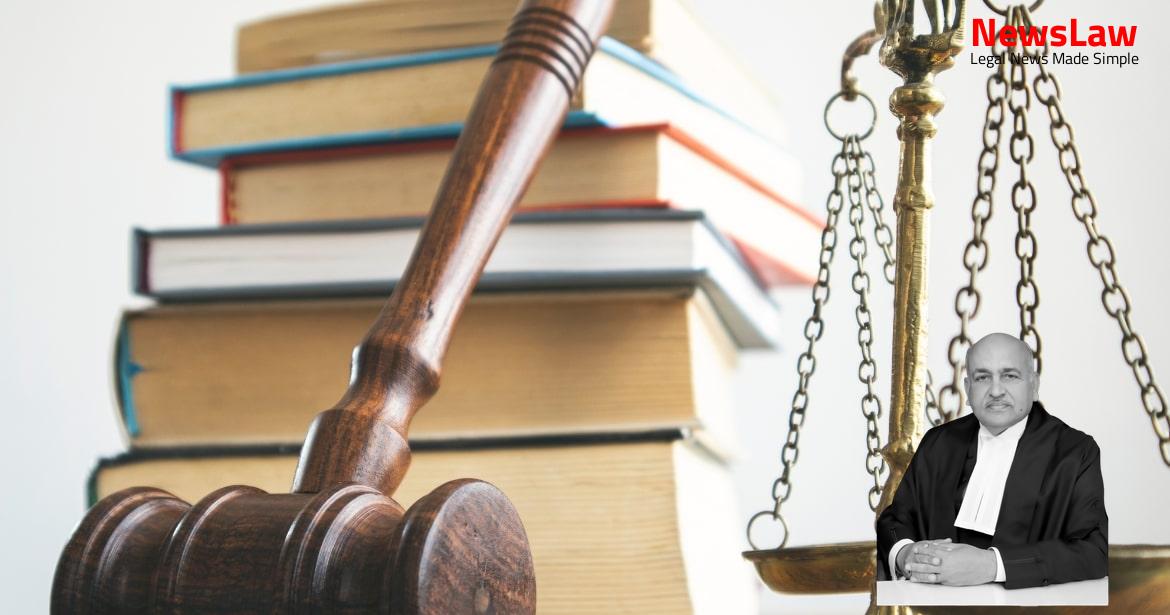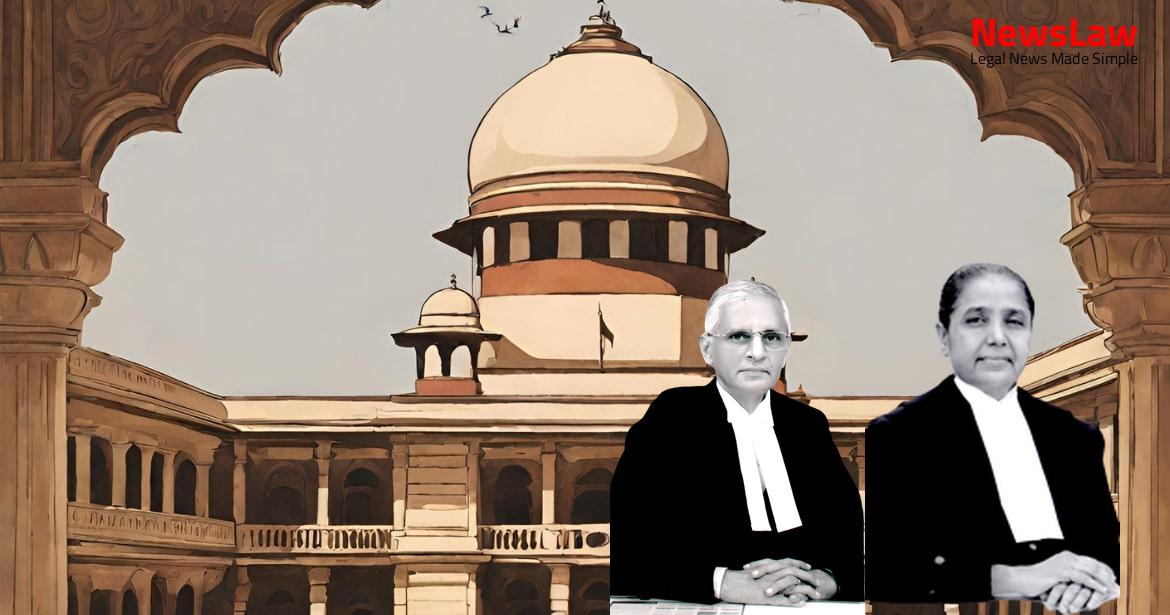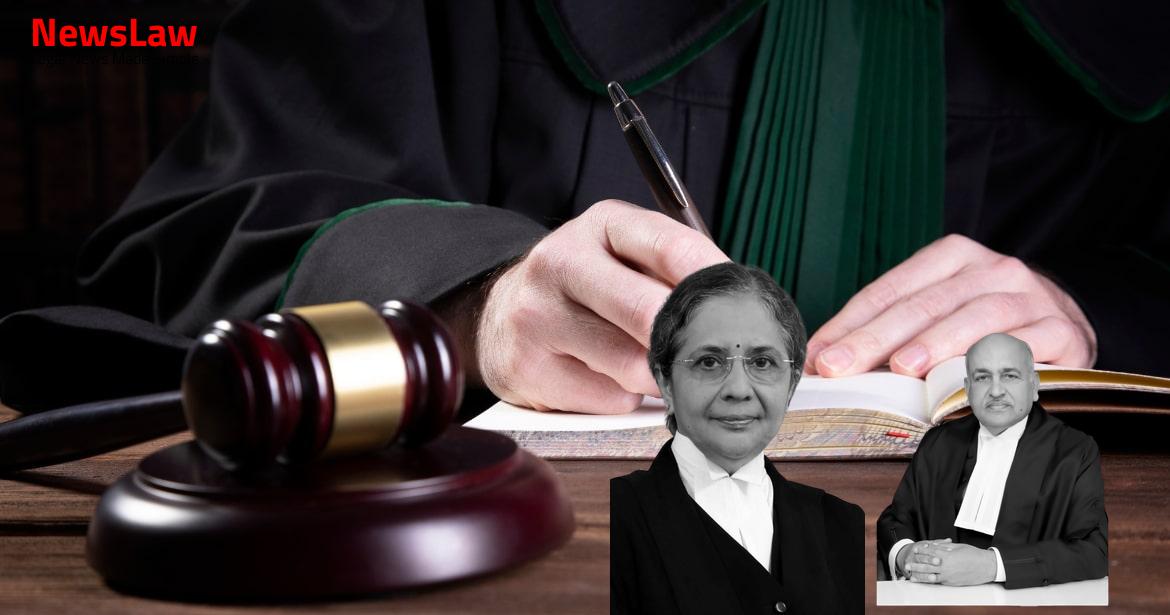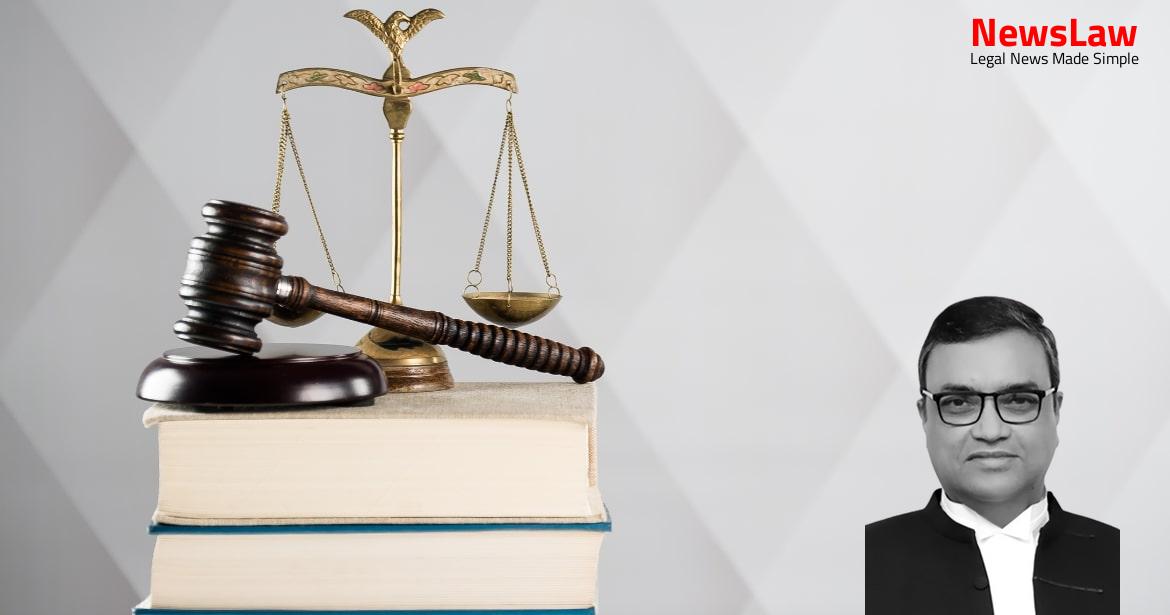Avani Towers Private Limited, which is the Corporate Debtor in respect of whom CIRP has been initiated, not only provided finance to Energy Properties, for the purchase of the said property, but also holds 40% of the share capital in Energy Properties, apart from holding a Joint Development Agreement with Energy Properties in respect of the property in question. Therefore, the Resolution Professional filed an application in CA (IB) No.1807/KB/2019 (RP Application) before the Adjudicating Authority under Section 25 of IBC read with Regulation 30 of IBBI (Insolvency Resolution Process for Corporate Persons) Regulations, 2016, praying (i) for a direction to Energy Properties & Others (including Victory) not to obstruct the sole and exclusive possession of the property; and (ii) also for the issuance of direction to the local district administration to give proper assistance to the Resolution Professional in taking possession of the property so as to discharge his duties under the Code. By an Order dated 12.02.2020, the Adjudicating Authority directed Victory and Energy Properties not to obstruct the possession and activities of the Resolution Professional and also holding at the same time that the order will not prevent Victory from carrying on their activities in the portion of the land given to them under the Leave and License Agreement. CA(IB) 146/KB/2020 stands disposed off.”
Aggrieved by the said order of the Adjudicating Authority, two independent appeals were filed, one by Victory and one by Energy Properties, before the NCLAT. The dispute in a nutshell, in this triangular fight, is between (i) the ostensible owner of the land, namely, Energy Properties, who purchased the property from the Authorized Officer of UCO Bank under the Securitisation and Reconstruction of Financial Assets and Enforcement of Security Interest Act, 2002, under a Sale Certificate dated 29.01.2008, on the one hand; (ii) the Corporate Debtor represented by the Resolution Professional, who actually financed the purchase of the said property by Energy Properties, under a Memorandum of Understanding dated 24.01.2008 and who also entered into an agreement on 16.06.2008 with Energy Properties for the joint development of the said property; and (iii) Victory, to whom a portion of the land measuring an extent of 10000 sq.ft. These facts are: (i) on 24.01.2008, Energy Properties and the Corporate Debtor entered into a MoU, by which, the Corporate Debtor agreed to provide financial assistance to the extent of Rs.2.70 crores to Energy Properties, towards the purchase of the land in question, that was being brought to sale by UCO Bank in exercise of the powers conferred by the SARFAESI Act. The factum of handing over of possession of the property in entirety to the Corporate Debtor was also confirmed in two subsequent MoUs dated 02.03.2010 and 24.06.2010, executed respectively by (a) the Shareholders of Energy Properties as well as by (b) Energy Properties themselves.
(vi) However, Victory ( the licensee ) now claims that they subsequently got permission to use the whole of the land, of the total extent of Rs.10.19 acres by paying an additional license fee of Rs.5,000/- per month. (ix) Victory is opposing the claim of the Resolution Professional on the ground that they are in possession of the entire land and that the Adjudicating Authority under the IBC does not have the power to evict a tenant/lessee/licensee in possession of the property. It is contended on behalf of Victory, (i) that the asset in question, namely, the land of the extent of 10.19 acres is owned by Energy Properties and not by the Corporate Debtor; (ii) that under Section 25(2)(a) of IBC, the Resolution Professional is entitled to take custody and control only of the assets of the Corporate Debtor and not the assets of a third party; (iii) that under Regulation 30 of the Regulations, the Resolution Professional is entitled to seek the assistance of the local district administration only for discharging his duties under the Code and hence the very application moved by the Resolution Professional under Regulation 30 was misconceived, in the light of the circumspection indicated in Section 25(2)(a) of IBC; and (iv) that even as per the very complaint lodged by the Resolution Professional, Victory is in possession of the entire extent of land and that, therefore, in the light of the law laid down by this Court in Embassy Property Developments Private Limited vs. More particularly, it is contended on behalf of the Energy Properties, (i) that when the Corporate Debtor is not in possession of the property, he is not entitled to use the mechanism provided in IBC to recover possession; (ii) that though Section 18(f) of the Code enables Interim Resolution Professional to take control and custody of any asset over which the Corporate Debtor has ownership rights, the Explanation under Section 18 excludes the assets owned by a third party in the possession of the Corporate Debtor, held under contractual arrangements, from the purview of the definition of the term “ assets ” within the meaning of Section 18; and (iii) that the decisions of this Court in Embassy Property Developments Private Limited, Gujarat Urja Vikas Nigam Limited and Tata Consultancy (supra) have clinched the issue without any pale of doubt.
Supporting the impugned orders, it is contended on behalf of the Resolution Professional and also on behalf of the Committee of Creditors, (i) that the impugned orders have not hampered the rights of Victory under the Leave and License Agreement in any manner; (ii) that under the Development Agreement as well as the two MoUs which followed, the possession of the entire extent of land has been handed over to the Corporate Debtor; (iii) that what is sought to be included in the Information Memorandum are the development rights that the Corporate Debtor has over the property in question; (iv) that those development rights constitute intangible assets of the Corporate Debtor; (v) that it is settled by the decision of this Court in Sushil Kumar Agarwal vs Meenakshi Sadhu & Others that the right of development of a property is an intangible asset of the developer and it is especially so when this development project was shown in the balance sheets of the Corporate Debtor year after year; and (vi) that, therefore, the impugned orders do not warrant any interference. They are, (i) what is the nature of the right or interest that the Corporate Debtor has over the property in question, for the purpose of deciding the inclusion of the same in the Information Memorandum prepared by the Resolution Professional under Regulation 36 of the Regulations?; and (ii) whether NCLT and NCLAT have exercised a jurisdiction not vested in them in law by seeking to recover/protect the possession of the Corporate Debtor? Section 3 which is in Part-I contains the definitions of words and phrases, and these definitions are applicable throughout the Code, unless the context otherwise requires. But the word “ asset ” is not defined either in Section 3 or in Section 5 or in Section 79 of the Code, though Section 79(14) defines the expression “ excluded assets ”. – The interim resolution professional shall perform the following duties, namely: — (a) collect all information relating to the assets, finances and operations of the corporate debtor for determining the financial position of the corporate debtor, including information relating to— (i) business operations for the previous two years; (ii) financial and operational payments for the previous two years; (iii) list of assets and liabilities as on the initiation date; and (iv) such other matters as may be specified; (b) receive and collate all the claims submitted by creditors to him, pursuant to the public announcement made under sections 13 and 15; (c) constitute a committee of creditors; (d) monitor the assets of the corporate debtor and manage its operations until a resolution professional is appointed by the committee of creditors; (e) file information collected with the information utility, if necessary; and (f) take control and custody of any asset over which the corporate debtor has ownership rights as recorded in the balance sheet of the corporate debtor, or with information utility or the depository of securities or any other registry that records the ownership of assets including— (i) assets over which the corporate debtor has ownership rights which may be located in a foreign country; (ii) – (1) It shall be the duty of the resolution professional to preserve and protect the assets of the corporate debtor, including the continued business operations of the corporate debtor. (2) For the purposes of sub-section (1), the resolution professional shall undertake the following actions, namely: — (a) take immediate custody and control of all the assets of the corporate debtor, including the business records of the corporate debtor; (b) represent and act on behalf of the corporate debtor with third parties, exercise rights for the benefit of the corporate debtor in judicial, quasi-judicial or arbitration proceedings; (c) raise interim finances subject to the approval of the committee of creditors under section 28; d) appoint accountants, legal or other professionals in the manner as specified by Board; (e) maintain an updated list of claims; (f) convene and attend all meetings of the committee of creditors; (g) prepare the information memorandum in accordance with section 29; (h) invite prospective resolution applicants, who fulfils such criterion as may be laid down by him with the approval of the committee of creditors, having regard to the complexity and scale of operations of the business of the corporate debtor and such other conditions as may be specified by the Board, to submit a resolution plan or plans.
(i) present all resolution plans at the meetings of the committee of creditors; (j) file application for avoidance of transactions in accordance with Chapter III, if any; and (k) such other actions as may be specified by the Board.” It may be noticed from Sections 18 and 25 that the word “asset” and not the word “ proper ty” is what is used in these provisions, though the word “ property ” is defined in Section 3(27).
The Recovery of Debts and Bankruptcy Act, 1993 does not define the word “ asset ” but defines the word “ property ” in Section 2(jb) as follows: “ 2. But the word “ asset ” is defined in Section 102(2) of the Income Tax Act, 1961 to include “ property or right of any kind ”.
The documents to which useful reference can be made are: (i) MoU dated 24.01.2008; (ii) Shareholders Agreement dated 24.01.2008; (iii) Sale Certificate dated 29.01.2008; (iv) Development Agreement dated 16.06.2008; (v) Memorandum Recording Possession dated 02.03.2010 executed by the shareholders of Energy Properties; (vi) Memorandum Recording Possession dated 24.06.2010 executed by Energy Properties; and (vii) Leave and License Agreement dated 19.08.2011.
The covenants contained in the MoU indicate- That the Corporate Debtor was required to pay the amount of Rs.2.70 crores directly to UCO Bank and the Sale Certificate issued by the Bank along with the original title deeds (parent documents) held by the Bank were to be handed over by the Bank to a named solicitor and advocate; That a Definitive Agreement was to be entered into between Energy Properties and the Corporate Debtor, to enable the Corporate Debtor exclusively to undertake the development of the property; That if no Definitive Agreement was entered into, then the Corporate Debtor shall be entitled to create a charge over the said property, for securing the repayment of the accommodation amount; That the quid pro quo for the Corporate Debtor providing financial accommodation to Energy Properties, was two- fold, namely, (i) that the shareholders of Energy Properties should transfer 40% of the total shareholding in Energy Properties to the Corporate Debtor and 20% shareholding to the named Solicitor and Advocate; and (ii) that the Corporate Debtor should be given the exclusive right to develop the property; Towards fulfilment of their obligation under the MoU dated 24.01.2008, the Corporate Debtor paid necessary amounts to the UCO Bank/Energy Properties/the shareholders of Energy Properties.
One of the covenants contained in the Development Agreement is that Energy Properties will not let-out, lease, mortgage and/or charge the said property without the consent in writing of the Corporate Debtor. After more than a year of such handing over of possession, Energy Properties as well as the Corporate Debtor jointly executed a Leave and License Agreement on 19.08.2011 in favour of Victory. Therefore, the development rights created in favour of the Corporate Debtor constitute “ property ” within the meaning of the expression under Section 3(27) of IBC. In Sushil Kumar Agarwal (supra), this Court brought out the distinction between different types of Development Agreements, with particular reference to Section 14(3)(c) of the Specific Relief Act, 1963. Therefore, it is not very difficult to conclude, that a bundle of rights and interests were created in favour of the Corporate Debtor, by a series of documents such as (i) the MoU dated 24.01.2008; (ii) the shareholders agreement dated 24.01.2008; (iii) the flow of the consideration from the Corporate Debtor to the UCO Bank and to Energy Properties; (iv) the Development Agreement dated 16.06.2008; (v) the Memorandum Recording Possession dated 02.03.2010 executed by the original shareholders of Energy Properties; (vi) the Memorandum Recording Possession dated 24.06.2010 executed by Energy Properties in favour of the Corporate Debtor; and (vii) the Leave and License Agreement primarily executed by the Corporate Debtor in favour of Victory, which was merely confirmed by Energy Properties as a confirming party. Therefore, the exclusion of assets owned by a third-party, but in the possession of the Corporate Debtor held under contractual arrangements, from the definition of the expression “ assets ”, is limited to Section 18. In any case, the bundle of rights and interests created in favour of the Corporate Debtor may even tantamount to creation of an implied agency under Chapter-X of the Indian Contract Act, 1872 and such agency may not even be amenable to termination in view of Section 202 of the said Act, since the creation of the same in favour of the Corporate Debtor was coupled with flow of consideration.
Once a mining lease is granted, the terms and conditions of such grant may be subject to the covenants contained in the grant as well as the statutory provisions. In fact, the decision in Gujarat Urja Vikas Nigam Limited was distinguished in Tata Consultancy (by the very same author), on the ground that if the termination was on an ipso facto clause i.e., the fact of insolvency itself, then NCLT will have jurisdiction, but that there was no residuary jurisdiction for NCLT, if the termination of a contract is based on grounds unrelated to the insolvency. In the said case, there was a tripartite joint development agreement entered into between (i) a Society representing a large number of persons occupying 672 tenements in the property; (ii) Maharashtra Housing and Area Development Authority, which was the owner of the land; and (iii) the corporate debtor. Having seen the legal position, let us now come back to the facts of the case to see whether NCLT and NCLAT addressed the issue correctly or not. Therefore, NCLT as well as NCLAT were right in holding that the possession of the Corporate Debtor, of the property needs to be protected.
Pending application(s)
, if any, stands disposed of accordingly.
Case Title: VICTORY IRON WORKS LTD. Vs. JITENDRA LOHIA (2023 INSC 230)
Case Number: C.A. No.-001743 / 2021



